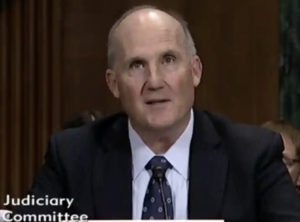
Perception matters. In the courts, it matters even more. And when child sex abuse victims are in the courts, it matters a lot. That’s why we at Horowitz Law are saddened by the recent news out of New Orleans. an Associated Press investigation has found that a judge who may oversee more than 500 clergy sex abuse cases in the New Orleans archdiocesan bankruptcy proceeding has donated tens of thousands of dollars to Louisiana Catholic entities. He and his wife have also been publicly thanked by some of those entities for their volunteer work. Judge Greg Guidry now refuses to step down from the case until more questions are solved.
Victims whose cases are now part of the archdiocesan bankruptcy process are understandably worried that the judge’s contributions and ties to the church hierarchy will lead to biased decisions. We at Horowitz Law fear a broader problem. We are afraid that this controversy will discourage others who suffered sexual violence as children from taking advantage of a recent Louisiana law that gives far more of them a chance to file lawsuits against and publicly expose wrongdoers.
That civil ‘window’ enables men and women who were sexually violated during childhood to file civil cases against those who committed or concealed the abuse until 2024, no matter when the crimes took place. But this new law can only benefit survivors IF they know about it and IF they have enough faith in our justice system to pursue justice. So how does the New Orleans judge controversy impact this new legal opportunity?
We’ve said it over and over on this blog for years: We as a society can either make it harder for suffering victims to speak up, or we can make it less tough. We avoid the word ‘easier.’ There’s never anything easy when it comes to grappling with child sex crimes and cover-ups, especially if you are the one who’s been victimized. The dispute over this judge’s donations to Catholic institutions can’t help but make it tougher for Louisiana victims to step forward.
Almost by definition, child sex crimes are committed by authority figures, either formal (principal, coach, minister) or informal (father, trusted uncle, mom’s boyfriend). When victims of those crimes are finally able to report them and consider taking legal action, they almost always have to deal with ANOTHER authority figure: a police officer, a principal, an athletic program director, a top school administrator, a local prosecuting attorney, or a high-ranking (and usually highly respected) church figure.
The trouble is that having been sexually violated by an authority figure, survivors are less inclined than most to trust an authority figure, even if that person holds a role in a ‘helping profession (like therapist or doctor) or a law enforcement profession (like a police officer, prosecutor or judge). And when abuse victims don’t or can’t trust, they stay quiet, and their perpetrators stay ‘under the radar.’ We are NOT saying the New Orleans judge is wrong. We ARE saying that anything that deepens or fosters the distrust of crime victims is problematic.
An example: If rumors circulate that the local sheriff is friendly with organized crime figures, anyone who has information about organized crime will be less apt to call the sheriff or his/her deputies, assuming that little will be done. The truth of the rumor is almost irrelevant. What matters more is the perception that the sheriff is corrupt. That perception or impression, right or wrong, is enough to make the fight against organized crime tougher because victims or witnesses will be inclined to ‘play it safe’ and remain silent. In ways he may not be aware of, maybe this judge is biased. on the other hand, maybe he’s the best possible judge for this case.
But regardless, questions or fears about his objectivity – or lack of it – may lead some victims to say, “What’s the use? If I come forward, I likely won’t get a fair shake in the legal system. I’ll just keep my mouth shut and plod along like I’ve done all these years.” In this unfortunate situation, what can you do to help?
Ask yourself, “Who do I know that was or is in Louisiana, who might have been abused, who might be unaware of this new legal opportunity, and who may need some support as they ponder whether to keep suffering in silence or start speaking and healing?” Then reach out to that person or persons. Ask them, “When you were young, did anyone abuse you or touch you inappropriately?” Tell them, “Now more than ever, you may have a chance for justice. You may be able to ‘out’ your predator. You might help another child avoid the same horror you experienced.” And urge them to call a veteran child sex abuse lawyer to learn more about this law and this opportunity.
Horowitz Law is a law firm representing victims and survivors of sexual abuse by religious authority figures and other clergy. If you need a lawyer because a member of a religious organization sexually abused you, contact our law firm at 888-283-9922 or email sexual abuse lawyer Adam Horowitz at [email protected]. Our lawyers have decades of experience representing survivors of clergy sexual abuse nationwide. We can help.
